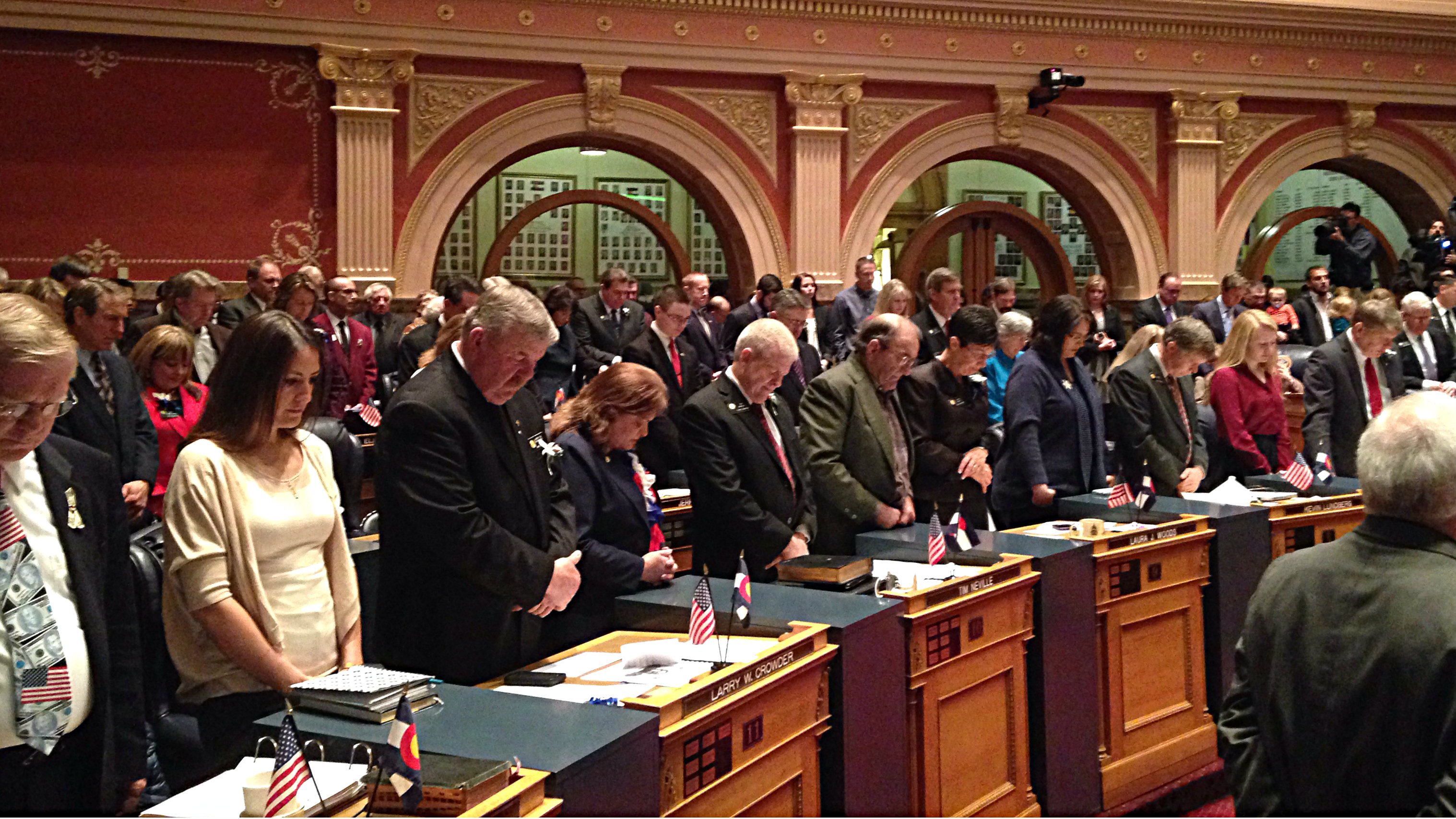
When it comes to fighting poverty, how should the government balance direct aid to the poor with encouraging business and the job growth that comes with it? That is the fundamental question at the Colorado Legislature as each party proposes ways to reduce poverty.
Democratic proposals in the pipeline
On Thursday, the Senate Health and Human Services committee will hear Senate Bill 012, which would allow single parents receiving welfare to also collect child support. Currently the government keeps that money, in part to defray the cost of the benefits.
Sponsor Sen. John Kefalas, D-Fort Collins, says public assistance rates are so low ($460 a month for a single parent with two children) that allowing needy families to collect child support too could make a big difference.
"If we can get a few more hundreds of dollars to that family, to that child, that will help them on their way to greater economic security," said Kefalas.
Counties stand to lose out on money they've used to fund numerous programs. Kefalas says he's working to see if the state might backfill some or all of those funds.
A fight is also looming over a proposal to create a paid leave insurance program, as President Barack Obama called for in his State of the Union address last night. The forthcoming bill imagines a state-run insurance pool, with every Colorado worker contributing from $1 to $10 a week, based on income. People could then apply to receive a percentage of their wages if they needed to take leave to care for a new baby or a sick relative.
In California, where a similar program has operated for the past decade, people in the upper income brackets have actually taken the most advantage of the benefit. Backers of the Colorado program are trying to make it more attractive to lower-income workers. People who make less money would be eligible to have a larger percentage of their income refunded during leave.
"So many families are faced with the challenge of saying, 'Do I take this time off and not receive pay and potentially have my mortgage go behind, or have my bills go behind?'" said bill sponsor Sen. Jessie Ulibarri, D-Sherrelwood. "And it makes it such a much more stressful situation."
The FAMLI Act, as it's called, faces several big hurdles. The first is a hefty price tag. Nonpartisan legislative analysts who looked at a previous version of this bill introduced last year estimated it would cost the state tens of millions of dollars to set up the insurance program and require hundreds of new state workers to administer it.
The second hurdle is strong opposition from Colorado's business community.
Tony Gagliardi, head of the Colorado chapter of the National Association of Independent Business, says more than 90 percent of his members are against the idea. He says their concerns range from administering the payroll deductions to having to scramble if more employees start taking leave.
"When you lose an employee, that's work that's not getting done," said Gagliardi. "Now you're either paying overtime to make sure your projects get completed and out the door on time. Or you're paying penalties for not getting the product out the door on time."
Republicans look to business to fight poverty
Colorado Republicans, who now control the state Senate, claim that anti-poverty programs that burden business are doomed to failure.
Instead, the caucus touts measures its members say will make it easier for companies to grow and hire more workers. Those include a bill requiring 'fiscal impact statements' for all future legislation and regulations, attempting to quantify the potential affect on the economy. Republicans are also expected to introduce measures later in the session to reduce or remove the business personal property tax, a long-reviled tax companies pay on the equipment and other infrastructure they own.
"Part of what I think we can do ... is maybe continue to look in to see where the Legislature or the regulatory scheme of the state is getting in the way of opportunity in Colorado," said Senate President Bill Cadman.
A few areas of common ground
With control of the chambers divided between the parties, many of these policies face an uncertain future.
But there are a few areas of agreement. Both Republicans and Democrats want the state to do more in the area of workforce development, an issue that sits at the confluence of assisting the poor and encouraging business.
Gov. John Hickenlooper recently unveiled a new program to help connect the long-term unemployed with more job placement services. And a bipartisan group of lawmakers are pushing a bill that would let counties create their own higher education scholarship programs, and use tax credits to encourage donations.
Whether more controversial programs can survive the split Legislature will depend a lot on how broad a coalition their backers can build.
Other bills related to child poverty:
- HB-1024: Funds an 3,000 additional half- or full-day preschool slots, at a cost of $11 million to the state.
- HB-1079: Devotes state money to a previously federally-funded pregnancy and dropout prevention counseling program.
- HB-1080: Restricts a free breakfast program to only schools with 80 percent or more low-income students.
- SB-054: Requires schools that operate on a 4-day week to supply low-income students with a box lunch to take home for the fifth day.
- SB-079: Funds affordable housing development through a new $1 fee on all county document filings (marriage licenses, real estate deeds, etc).
- SB-095: Encourages more development of manufactured housing communities.
This story is part of our ongoing exploration of Colorado kids who are living in poverty: how it affects their lives and our common future. We'd like to hear your ideas about about what can be done about child poverty in Colorado. Share your thoughts through our Public Insight Network.









